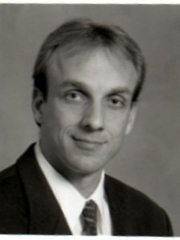Michael Kleeman, Ph.D.
- Professor, Civil and Environmental Engineering
- Study of urban and regional air quality problems
- Composition of atmospheric particles and gas-to-particle conversion processes
Biography
Professor Michael Kleeman’s research is focused on the study of urban and regional air quality problems with an emphasis on the size and composition of atmospheric particles and gas-to-particle conversion processes. These issues are important because research has found that airborne particles with diameters less than 2.5 microns cause adverse health effects. The size and composition of particles found in the atmosphere also determines much of the visibility reduction observed in large cities.
The experimental component of his research involves the measurement of the size and composition of particles when they are released to the atmosphere and after they have been transformed by physical and chemical processing.
This detailed information is then used in mechanistic air quality modeling calculations that track the evolution of particles in the atmosphere after they have been released from the source. By following these particles separately, it is possible to calculate how different emissions sources influence the size and composition of particles at down-wind receptor sites. Ultimately, this makes it possible to calculate the effect that different sources have on visibility and human health.
Detailed calculations such as those described above require significant computational resources. Today’s supercomputers have grown to meet these challenges but at a large price. To overcome this obstacle, his research group uses clustered workstations and the Linux operating system to create a distributed memory parallel computer (“beowulf” system). This platform provides a powerful and flexible computing environment suitable for large air quality modeling calculations.
The computer cluster maintained by the Kleeman research group for air quality modeling has 400 nodes and is one of the largest parallel computers within the University of California system that is operated by a single research group.
ECI 19 C Programming for Civil and Environmental Engineers (4)
Lecture—3 hours; laboratory—3 hours. Prerequisite: Mathematics 21A (may be taken concurrently). Pass 1 open to Civil Engineering majors and Optical Science and Engineering majors. Computational problem solving techniques for Civil and Environmental Engineering applications using structured C programming. Algorithm design applied to realistic problems.
ECI 119 Parallel Processing for Engineering Applications (4)
Lecture—3 hours; laboratory—3 hours. Prerequisite: C programming or consent of instructor. Fundamental skills in parallel computing for engineering applications; emphasis on structured parallel programming for distributed memory parallel clusters.
ECI 241 Air Quality Modeling (4)
Lecture—4 hours. Prerequisite: Applied Science Engineering 115, course 119A, 149, 150, one from course 242 or 247, or the equivalent, graduate standing. Modeling of urban and regional air quality problems including gas-phase chemical reactions, aqueous-phase chemical reactions, phase partitioning, and numerical solution schemes.
ECI 242 Air Quality (4)
Lecture—4 hours. Prerequisite: Engineering 105, course 141, 149 or the equivalent. Factors determining air quality. Effects of air pollutants. Physical and chemical fundamentals of atmospheric transport and reaction. Introduction to dispersion modeling.
ECI 247 Aerosols (4)
Lecture—4 hours. Prerequisite: Engineering 103, 105, course 141, 149. Behavior of airborne particles including particle formation, modification, and removal processes.
ECI 247L Aerosols Laboratory (4)
Lecture—2 hours; laboratory—6 hours. Prerequisite: course 247. Methods of generation and characterization of aerosols. Detailed topics may include flow rate measurement, aerosol generation, aerosol collection, ions measurement, metals measurement, and carbon measurement.
Thank you for your interest in the UC Davis Institute of Transportation Studies. Subscribe today to keep up with the latest ITS news and happenings.

